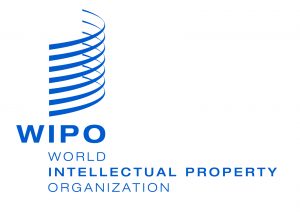Currently, the WIPO Standing Committee on Copyright and Related Rights (SCCR) is engaged in negotiations on a Treaty for the Protection of Broadcasting Organizations, an exercise dating back to 1998. (Source: Timeline of WIPO negotiations on a Treaty for the Protection of Broadcasting Organizations). The negotiating document under consideration is entitled, “Revised Consolidated Text on Definitions, Object of Protection, Rights to be Granted and Other Issues [1]” prepared by Martin Moscoso, the former chair of the Committee.
The following is a compilation of tweets by James Love (Director, Knowledge Ecology International) which sheds some light on the current negotiations. The tweets are arranged in chronological order.
* WIPO SCCR 34 has begun. Here is the new broadcasting treaty text. http://www.wipo.int/edocs/mdocs/copyright/en/sccr_34/sccr_34_3.pdf
* The new chair is from Singapore, and he begins meeting with a personal note about his skills as a jazz musician. #sccr34
* The #sccr34 begins by mentioning Youtube. Will Google be a beneficiary of the new broadcast treaty.
* The proposed text on exceptions for broadcast treaty are brief, 2 sentences, one of which is a 3 step test. #sccr34
* Exceptions in Berne include mandatory for quotations and news of day, both important for broadcasting, both missing in SCCR/34/3 #sccr34
* The new WIPO text for broadcasting, SCCR/34/3, creates rights with a 50 year term, from when context is transmitted. #sccr34
* Object of Protection in SCCR/34/3, “members of public may access it from a place and at the time individually chosen by them” #sccr34
* The rights to be granted in SCCR/34/3 include exclusive right of authorizing retransmission to the public “by any means” #sccr34
* Broadcasters are defined as entity “assembling and scheduling the programmes”. Such as owners of cable channels.
* #sccr34 the current text sccr/34/3 is a triumph for owners of cable challenges, a defeat for copyright holders and the public.
* SCCR/34/3 gives rights to web pages that stream content, including user generated. Notes need for “further work” on definition. #sccr34
* It’s a statement on its poor leadership that WIPO is proposing new IP layer for webpages streaming third party owned context. #sccr34
* In brief, #sccr34 will consider 50 years of rights in content web pages stream, even when they don’t own or license the context.
* #sccr34 some delegates claim broadcast treaty is “signal based” because right does not apply when you get content from alternative source.
* #sccr34 but getting content from alternative sources will be impossible in many cases. Sccr/34/3 will create a giant orphan works problem.
* sccr/34/3 create rights in the copy of the content transmitted, even when the underlying content is otherwise in the public domain.
* sccr/34/3 creates 50y term of exclusive rights in broadcast of political speeches and news, when broadcaster had nothing to do with content.
* One older criticism of @WIPO broadcast treaty is that is sought to solve problem of the 1950’s. New text is much worse.
* You could usefully replace the word “broadcasting” from #sccr/34/3, and substitute instead “Internet streaming” since this is the proposal.
* Martin Moscoso, a consultant to WIPO, nuked these exceptions from SCCR/27/2 Rev in the new SCCR/34/3. #sccr34
* #sccr34 European Union wants legally binding broadcast/streaming treaty, but only “best practices” for copyright exceptions.
* European Union calls for artists resale right to have a place on the permanent agenda of the SCCR. #sccr34
* People who think @WIPO has no chance of diplomatic conference on new broadcast/Internet/streaming treaty are misinformed. #sccr34
* Brazil mentions the importance of “balance” and “all stakeholders” including copyright holders, in broadcast treaty text. #sccr34
* Shira now speaking for @uspto. Wants to discuss SCCR/34/3 on technical level, and its a “reasonable” basis for discussions. #sccr/34/3
* #sccr34 Shira: “still significant disagreements . . some of the most fundamental issues. Notably the object of protection and the rights”
* The 1961 Rome Convention Article 15 on exceptions was more generous than SCCR/34/3. 3-step test did not even exist then. #sccr34
* SCCR34: Atmospherics of WIPO negotiations on a broadcasting treaty keionline.org/node/2761
